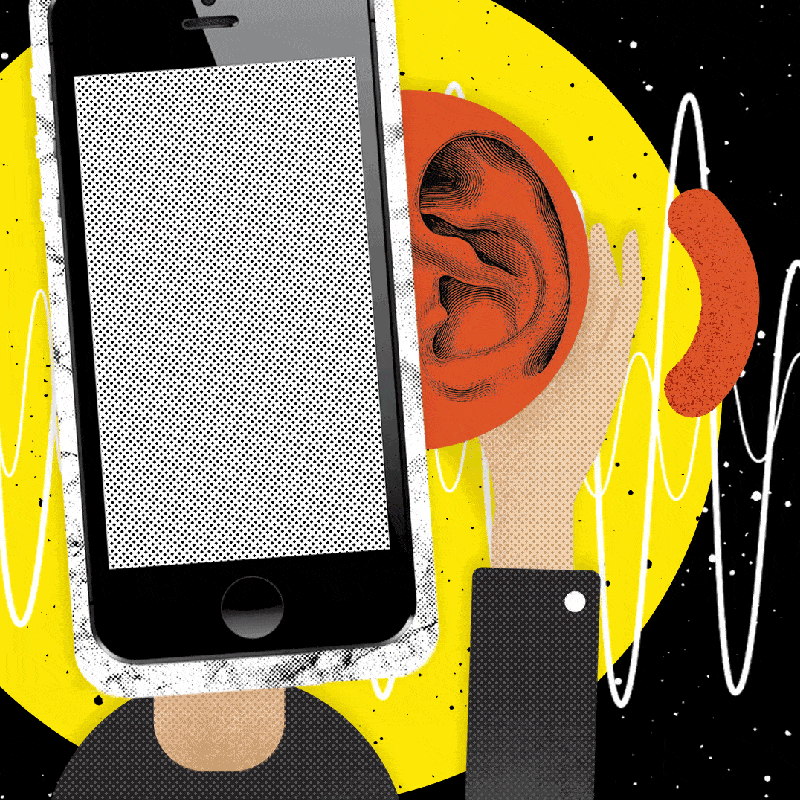How To Stop Your Phone And Other Smart Devices From Listening To You
October 26, 2023
Return to Learning Center

If you've ever thought someone was secretly eavesdropping on you, you're right. Smartphones and other devices can hear and record what you say, as proven by a now-viral TikTok that showed thousands of audio files recorded on a woman's Echo and Dot speakers and saved in the innermost folders of her Amazon account. "I'm not totally comfortable with everything they have," said the TikTok user, who accessed the files after requesting them from Amazon. Smart speakers, like Google Home devices or Amazon Echos, can accidentally activate 19 times a day and record 43 seconds of audio with each activation, according to a new study released by Northeastern University.
If you've ever thought someone was secretly eavesdropping on you, you're right. Smartphones and other devices can hear and record what you say, as proven by a now-viral TikTok that showed thousands of audio files recorded on a woman's Echo and Dot speakers and saved in the innermost folders of her Amazon account. "I'm not totally comfortable with everything they have," said the TikTok user, who accessed the files after requesting them from Amazon. Smart speakers, like Google Home devices or Amazon Echos, can accidentally activate 19 times a day and record 43 seconds of audio with each activation, according to a new study released by Northeastern University.
Are these devices constantly recording our conversations? In short, we found no evidence to support this. The devices do wake up frequently, but often for short intervals (with some exceptions). How frequently do devices activate? If we consider individual shows, a notable case is Google Home Mini, which while playing The West Wing exhibited 0.95 average activations per hour. If we consider all the shows, the devices that activated the most were the Invoke/Cortana and Echo Dot 2nd generation with "Echo" wake word (0.40 activations per hour), followed by Homepod (0.38 activations per hour).
How consistently do they activate during a conversation? The majority of activations do not occur consistently. We repeated our experiments 12 times (4 times for Invoke/Cortana), and most activations appeared in less than 25% of our experiments, meaning that the most common behavior is that the same audio sometimes activates the device and sometimes does not. This could be due to some randomness in the way smart speakers detect wake words, for example due to the random information loss that occurs when converting analog audio from the microphones to digital audio. Another explanation is that smart speakers may learn from previous mistakes and change the way they detect wake words. Even if a minority, there are also notable cases of consistent activations. For example, 20.7% of Google Home Mini activations and 17.7% of Homepod activations appear in more than 75% of our experiments.
We hope you enjoyed reading this guide and learned something new! Check out our Learning Center to learn more about online privacy and security or consider subscribing to our Online Privacy Service to remove your phone number, name, and address from Google, Bing, Yahoo, and DuckDuckGo search results and hundreds of data broker sites.
